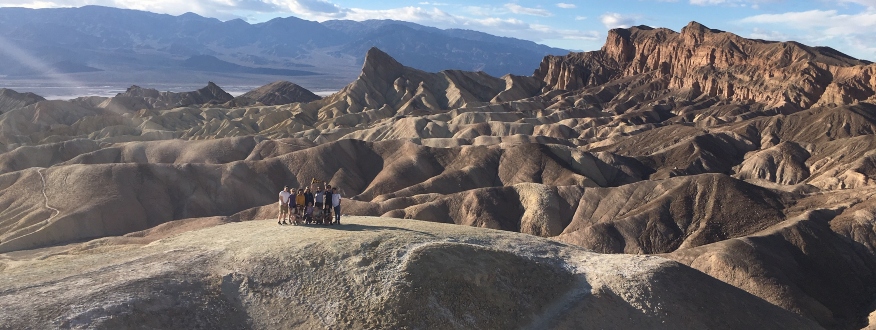Why Study Earth Science at PLU?
Civilization exists by geologic consent, subject to change without notice.
– Will Durant
Global society is based on geology. Our energy resources, construction and manufacturing materials, food and agricultural products, and building sites all depend on the geologic environment.
What is Earth Science?
Earth Science is a multidisciplinary field that studies the features, processes and history of the earth. The role of geoscientists will be central to the primary challenges facing the world in the 21st century, including global climate change and evolving demands for energy resources, construction and manufacturing materials, food and agricultural products, and building sites necessary to support a growing population. The earth sciences are distinct from other natural sciences in that knowledge from many other fields is integrated to explore questions that arise as humans interact with the Earth.
What do Geoscientists Do?
Geoscientists investigate processes that change the Earth over time, including dramatic geological processes such as earthquakes and volcanic eruptions, and ongoing processes associated with rivers, wind, glaciers, oceans, and soil erosion. Geoscientists are trained to explore how the materials of the Earth react over different time scales, from seconds to billions of years, and over different spatial scales, from atomic to planetary.
Study in the earth science requires creativity, collaboration, and the ability to integrate information from a wide range of connected topics such as chemistry, biology, physics, and geography. In this light, geoscientists have a particularly flexible professional skill set that is founded in core analysis and interpretation skills developed in the field and laboratory. Successful students must be able to think three dimensionally, have strong quantitative skills, and be able to communicate clearly through writing and speaking. Field trips are included in most courses.
Quick Links
Why Earth Science?
An informative brochure about the importance of geology by the American Geological Institute
Why study Earth Science at PLU?
Pacific Lutheran University is located at the leading edge of western North America offering a unique setting for the study of earth science. The natural environments of the Pacific Northwest region are unsurpassed in providing a rich variety of geologic field studies in the Cascade Mountains, the Columbia River Basalt Plateau, the coastal areas of the Puget Sound, the Pacific Ocean, and the Olympic Peninsula. The student/faculty ratio in earth science at PLU allows students to work closely with faculty in classes, laboratories, and field studies. Faculty members work individually with students in small seminar groups and on research projects.
We offer a Bachelor of Arts major and a minor in Earth Science. We also teach many classes for non-science majors at the university. The student/faculty ratio in earth science at PLU allows students to work closely with faculty in classes, laboratories, and field studies. Faculty members are available to work individually with students in small seminar groups and on research projects.







Social Media